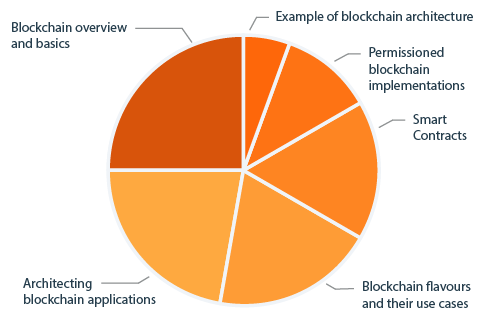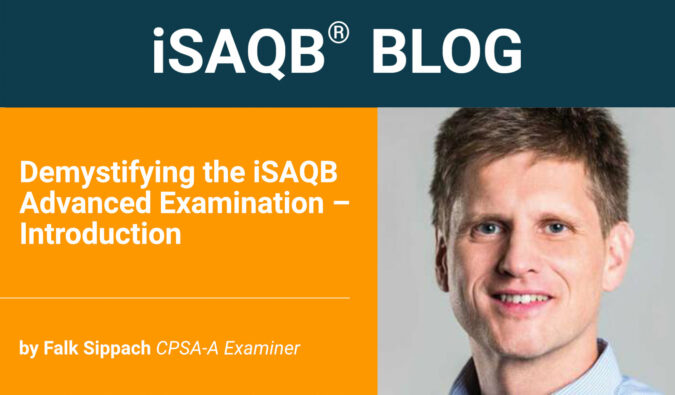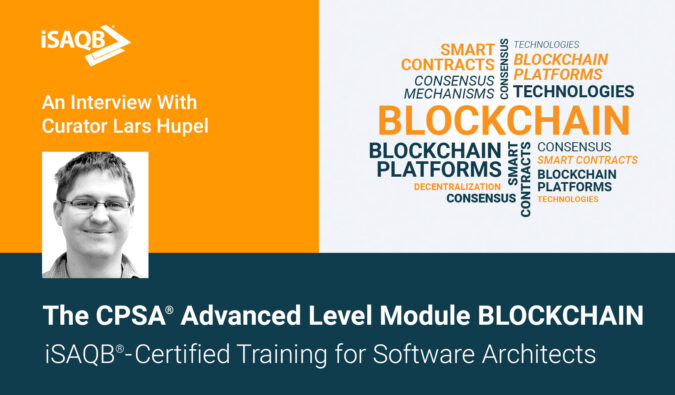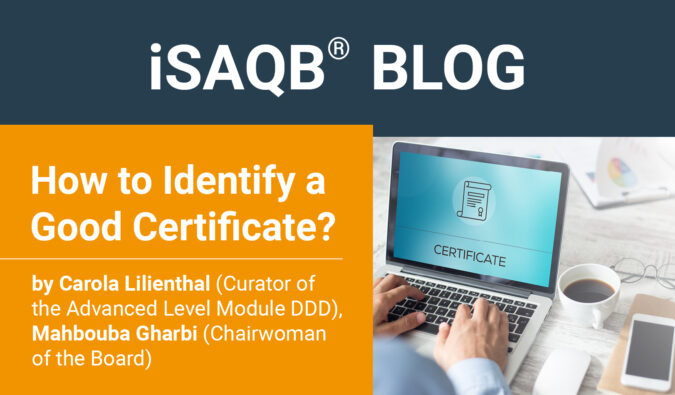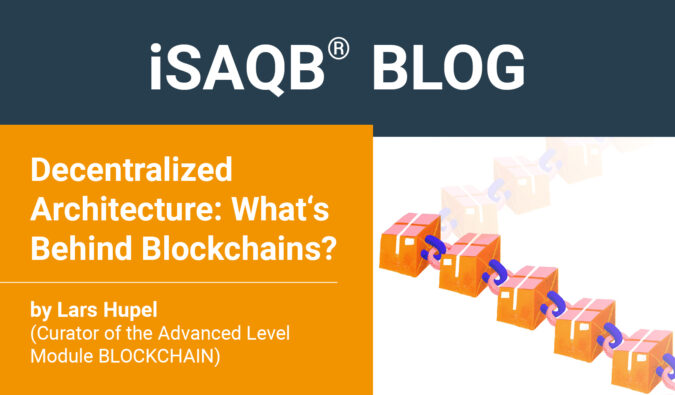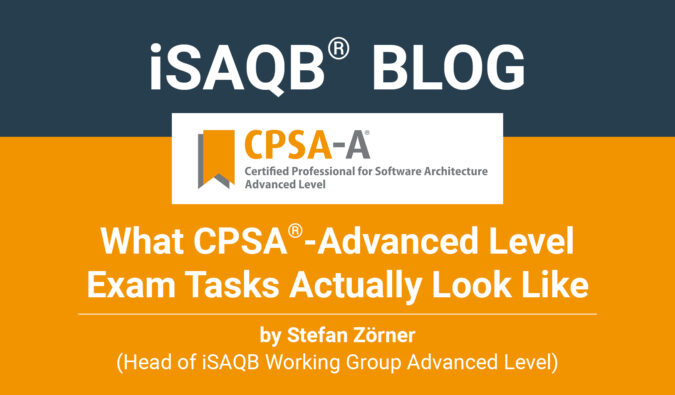Certified Professional for Software Architecture (CPSA®)
The CPSA® Advanced Level Module BLOCKCHAIN – iSAQB® Training Course in Low-Trust Consensus in Decentralized Applications
MODULE BLOCKCHAIN
Low-Trust Consensus in Decentralized Applications
How do you leverage blockchain technologies to establish consensus in distributed, low-trust systems? Learn how to design decentralized architectures.
Credit Points for BLOCKCHAIN Training Courses
Technological Competence
TECH
20
Methodical Competence
Method
10
Communicative Competence
Comm
0
BLOCKCHAIN
Content of the module Low-Trust Consensus in Decentralized Applications (BLOCKCHAIN)
How to leverage blockchain technologies to establish consensus in distributed, low-trust systems
The umbrella term “blockchain” describes a set of emerging, heterogeneous technologies for designing distributed systems that – while generally assuming little to no trust between parties – are able to establish consensus about stored data and procedures. Pioneered as a system to allow transfer of cryptographically secure monetary tokens, blockchains have since evolved to application platforms for executing smart contracts written in domain-specific languages. While cryptocurrencies are usually designed to lack a central authority, many industrial use cases admit partial cooperation between parties.
The central idea common to all blockchain implementations is that transactions can be stored in an append-only ledger that is being kept on multiple nodes, increasing resiliency and decreasing the potential for fraudulent post-hoc modifications.
Participants of this module will learn to recognize and classify use cases of blockchain technology. They will gain a deep understanding of the differences and trade-offs between their various flavors (public vs. permissioned, Proof-of-Authority/Stake/Work, smart contracts). Platform requirements and abilities, including languages for smart contracts and their testing and deployment, will be discussed.
The BLOCKCHAIN module focuses on the transfer of software engineering aspects from traditional methodologies to blockchain technologies. Participants will be able to make informed decisions about the tooling choices and be able to design decentralized applications.
Related Blog Posts
Demystifying the iSAQB Advanced Examination – Introduction by Falk Sippach, CPSA‑A Examiner
Falk Sippach’s blog post introduces the iSAQB CPSA Advanced certification, detailing the practical and theoretical challenges involved in completing its rigorous project-based exam within three months alongside regular work.
The CPSA Advanced Level is the second step within the iSAQB’s multi-level CPSA program (Certified Professional for Software Architecture). One of the 17 training options of the Advanced Level that participants can choose from is the module BLOCKCHAIN – Low-Trust Consensus in Decentralized Applications. In this informative interview, Lars Hupel, curator of the Advanced module…
How to Identify a Good Certificate?
There is a wide range of certificates on offer, yet most certificates and certification procedures are based on a similar process with some comparable variants…
Fueled by ever new highs in cryptocurrency prices, there is currently a lively debate about blockchains…
This blog post answers the most important questions about the written part of the iSAQB Advanced Level exam…
Additional Information
Frequently Asked Questions
There are currently no FAQs for this topic. Please check out our FAQ page for more FAQs.


